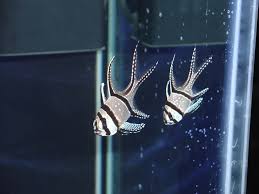Dragons in the Traditional Festivals of China’s Ethnic Minorities
Dragons (lóng, 龙) are an integral part of Chinese culture, symbolizing strength, wisdom, and prosperity. While they are commonly associated with Han Chinese traditions, dragons also play a significant role in the folklore, rituals, and festivals of China’s ethnic minority groups. These diverse communities, including the Miao, Zhuang, Dong, Bai, Yi, and others, have unique dragon-related traditions that reflect their regional beliefs and historical influences.
This article explores how dragons feature in the traditional festivals of China’s ethnic minorities, examining their symbolic meanings, roles in celebrations, and the cultural significance they hold within different communities.
I. The Role of Dragons in Ethnic Minority Culture
China is home to 56 officially recognized ethnic groups, each with its own customs, myths, and spiritual beliefs. While the Han Chinese dragon is often depicted as a benevolent guardian of nature and imperial authority, ethnic minority groups interpret dragons in various ways:
- Water spirits and protectors: Many ethnic groups living near rivers and lakes, such as the Zhuang and Dai, see dragons as deities of water and rain.
- Mythical ancestors: The Miao and Yao people believe they are descendants of dragon-like beings.
- Symbols of balance and prosperity: Some minorities incorporate dragon imagery in festivals to bring good fortune and harmony.
These diverse perspectives influence how dragons appear in festivals, dances, rituals, and storytelling across China’s ethnic regions.
II. The Dragon in Traditional Festivals of Ethnic Minorities
1. The Miao People and the Dragon Dance Festival
The Miao (苗族), one of China’s largest ethnic minorities, celebrate the Dragon Dance Festival (跳龙舞节, Tiào Lóng Wǔ Jié). This festival features spectacular dragon dances distinct from Han Chinese versions.
Key Features of the Festival:
- Time: Held during the second lunar month, usually in Guizhou Province.
- Performance: The Miao dragon dance uses colorful, handwoven dragon costumes that reflect their intricate embroidery traditions.
- Spiritual meaning: The dragon is seen as a protective ancestor spirit, and the dance is believed to ward off evil and bring agricultural blessings.
Unlike the Han dragon dance, which emphasizes synchronized movements, the Miao version is more ritualistic, often accompanied by shamanistic chanting and drum beats.
2. The Zhuang People and the Dragon Boat Festival
The Zhuang (壮族), China’s largest ethnic minority, celebrate their own version of the Dragon Boat Festival (端午节, Duānwǔ Jié), which differs from the Han tradition.
Key Features of the Festival:
- Time: Celebrated on the fifth day of the fifth lunar month, primarily in Guangxi Province.
- Dragon boats: Unlike the traditional Han Chinese dragon boats, the Zhuang craft long, wooden boats decorated with carved dragon heads painted in gold and red.
- Mythology: The Zhuang believe dragons live in the rivers and control rainfall. The festival honors water dragons, seeking their blessing for abundant harvests.
- Music and offerings: Participants sing Zhuang folk songs and make sticky rice offerings to river spirits.
This festival highlights the Zhuang people’s deep connection to water and dragons as rainmakers.
3. The Dong People and the Grand Song Festival
The Dong (侗族) ethnic group, known for their musical heritage, integrates dragon imagery into their Grand Song Festival (侗族大歌节, Dòngzú Dàgē Jié).
Key Features of the Festival:
- Time: Held annually in Guizhou and Hunan provinces.
- Musical storytelling: Traditional Dong polyphonic singing includes songs about dragons, describing them as protectors of their wooden drum towers and bridges.
- Dragon bridge ceremony: The Dong build “Dragon Bridges” over rivers and hold ceremonies to bless the community with peace and prosperity.
This festival highlights how the Dong view dragons as guardians of villages and symbols of cultural identity.
4. The Bai People and the Dragon King Worship Festival
The Bai (白族) ethnic group in Yunnan Province hosts an annual festival dedicated to the Dragon King (龙王, Lóngwáng), a deity controlling water sources.
Key Features of the Festival:
- Time: Celebrated during the rainy season in July or August.
- Water rituals: The Bai people offer incense, fruits, and tea to Dragon King temples near lakes and rivers.
- Mythology: Bai legends describe the Dragon King as a spiritual ancestor who blessed their ancestors with fertile land.
- Dragon dances: These involve masked performers representing river dragons in vibrant costumes.
For the Bai, dragons symbolize water, fertility, and protection, and their festival ensures environmental harmony.
5. The Yi People and the Torch Festival
The Yi (彝族) people in Sichuan, Yunnan, and Guizhou celebrate the Torch Festival (火把节, Huǒbǎ Jié), which features dragon symbolism in its fiery rituals.
Key Features of the Festival:
- Time: Held on the 24th or 25th day of the sixth lunar month.
- Fire dragons: Large wooden dragon effigies are burned to drive away evil spirits.
- Dragon myths: Yi legends describe fire dragons battling darkness, symbolizing the triumph of light and renewal.
This festival highlights how the Yi associate dragons with fire, cleansing, and cosmic balance.
6. The Dai People and the Water-Splashing Festival
The Dai (傣族) people of Yunnan celebrate the Water-Splashing Festival (泼水节, Pōshuǐ Jié), where dragons represent water blessings and purification.
Key Features of the Festival:
- Time: Celebrated in April, marking the Dai New Year.
- Water dragons: Dragon sculptures are paraded and splashed with water to symbolize rain and renewal.
- Spiritual meaning: The festival honors Nāga-like dragon spirits believed to live in the Mekong River.
This festival shows how the Dai revere dragons as rain gods and symbols of purification.
III. Conclusion: The Cultural Diversity of Dragon Festivals
Dragons are not only a Han Chinese symbol but also a unifying force in the traditions of China’s ethnic minorities. From water dragons blessing farmers to fire dragons burning away evil spirits, each ethnic group has developed its own dragon mythology and rituals.
Through these festivals, China’s ethnic minorities preserve their unique cultural identities while reinforcing the dragon’s role as a powerful, sacred, and protective force. Whether in river ceremonies, fiery spectacles, or sacred songs, the dragon remains a timeless symbol of strength, prosperity, and balance in the natural world.


